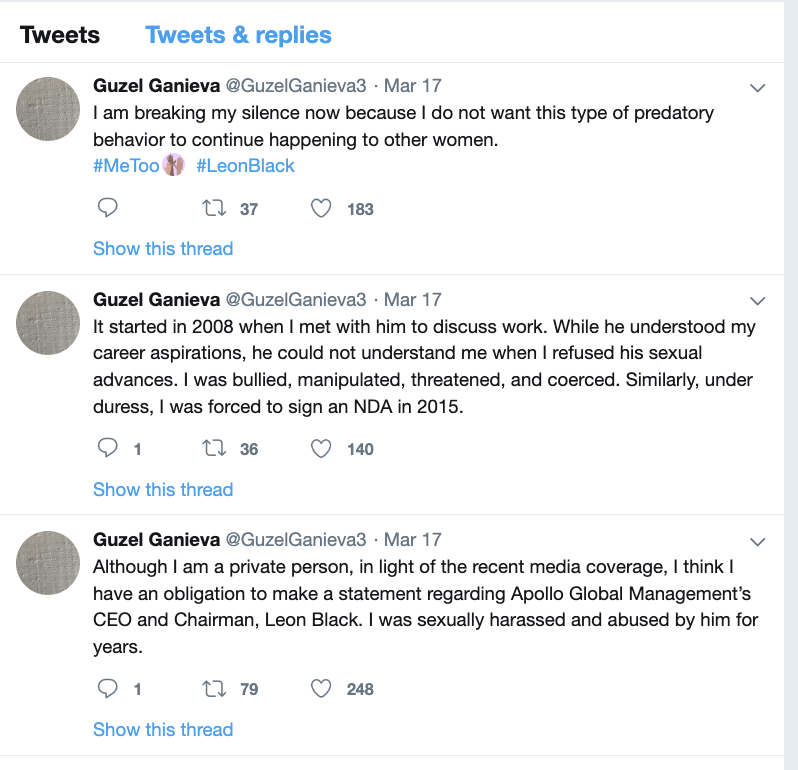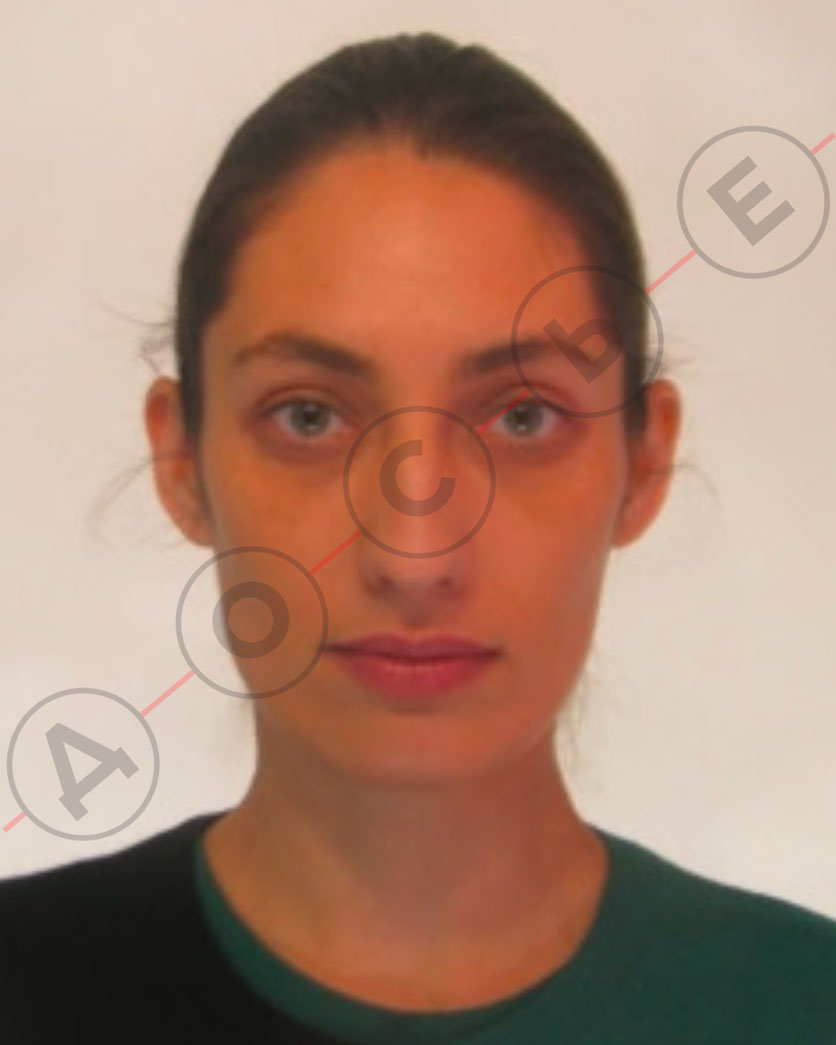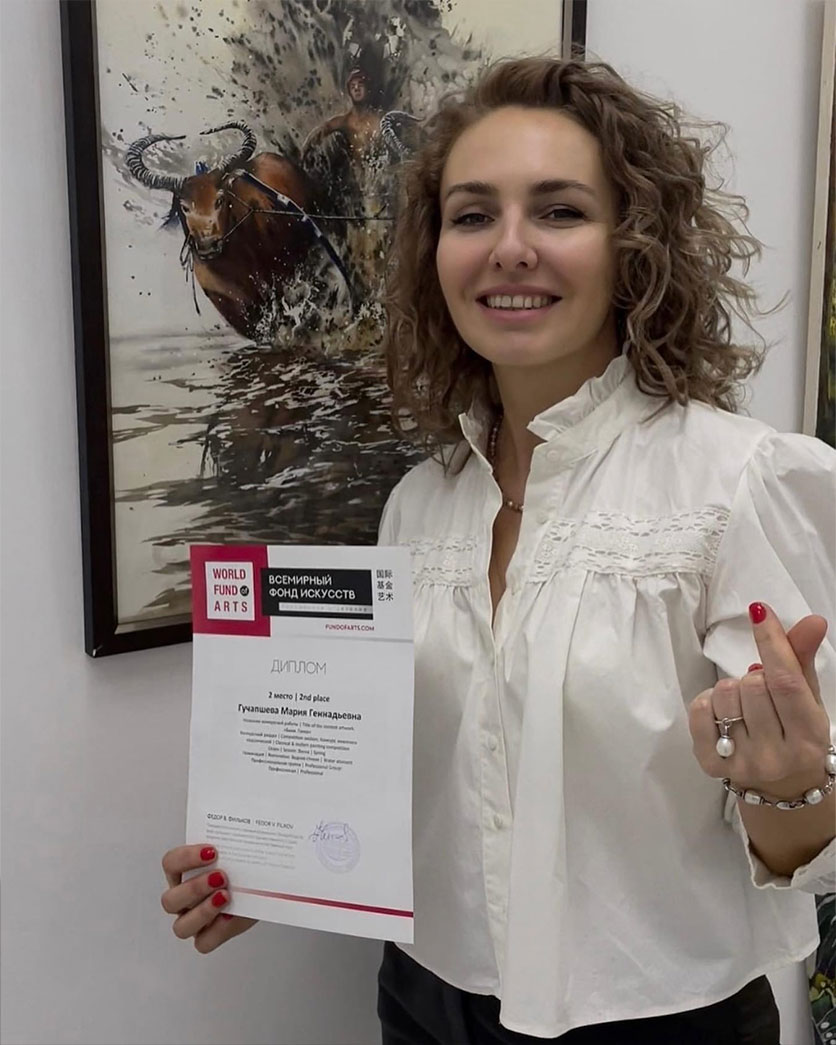Айфон — находка шпиона
Как телефон бывшего зама Шойгу поставил под угрозу секреты Минобороны

New details continue to emerge in the case of Jeffrey Epstein. The US financier and sex offender committed suicide in 2019 after his arrest on charges of human trafficking and soliciting prostitution, including of minors. Although hundreds of names of his victims and clients had been made public, there was almost no Russian trail in the Epstein case — until now.
The Dossier Center has uncovered the financier’s close contacts with Sergei Belyakov, then Deputy Minister of Economic Development and later head of the St. Petersburg Economic Forum Foundation, which runs the St Petersburg International Economic Forum (SPIEF). It has become the norm for female escorts from all over Russia to be present at the Forum.
Belyakov is a graduate of the FSB Academy which prepares Russian intelligence officers. As the Dossier Center discovered, he helped Epstein to deal with a Russian model who was blackmailing American businessmen, as well as proposing to arrange meetings with Deputy Finance Minister Sergei Storchak and Central Bank Deputy Chairman Alexei Simanovsky. For his part, Epstein advised Belyakov on saving the Russian economy amid imposed sanctions, while also recruiting high-profile guests for SPIEF.
In July 2015, [NB: spelling and punctuation here and below as per the original]:
«How are you, I need a favor, there is a russian girl from moscow. Guzel Ganieva. she is attempting to blackmail a group of powerful biznessman in New York, it is bad for business for everyone involved. she arrived new york saturday of last week staying at the Four Seasons. on 57 street. Suggestions?»
According to Epstein, Ganieva claimed that “powerful men were taking advantage of women like her”.
Belyakov responded swiftly, sending Epstein a profile of Ganieva just days later:
“So
“In good season (may-august) it brings her over $100 K”, Belyakov added. By ‘hard stories’, he could have meant BDSM (sado-masochism) practices. Ganieva later accused Jeffrey Epstein’s friend, Leon Black, of sadistic predilections and harassment.



It is unlikely that Epstein’s request would have surprised Belyakov. The St. Petersburg Economic Forum had long been known as a ‘hotspot’ for Russian escort girls. Modelling agencies openly admit that they officially collaborate with the SPIEF organizers — and that they do not control what their models do once the official events are over.
Escort services are risky not only for the people who are drawn into prostitution, but also for their clients. Sex workers often videotape their companions in order to blackmail them later. This was the case, for example, with the Belarusian Anastasia Vashukevich (“Nastya Rybka”), who was involved in a scandal with the oligarch Oleg Deripaska, and Sergei Prikhodko, Deputy Chairman of the Russian government. Compromising materials on high-profile businessmen and politicians are often gathered by intelligence services, a method commonly known as a ‘honey trap’. One occasion when this was used was the case of the Estonian military officer Deniss Metsavas, who was sentenced to 15.5 years for collaborating with Russian military intelligence. Metsavas said he had spent time with a girl during his trip to Smolensk, and then learnt from an officer of the Russian Main Intelligence Directorate (GRU) that she had filed a rape claim against him, and that only spying for Russia could save him from prosecution and disgrace.
Belyakov was in a unique position: not only was he on friendly terms with Epstein and in charge of SPIEF but he was also an FSB Academy graduate. He enrolled in the Academy in 1993, after completing two years of conscript service. Having graduated from the Academy in 1998, he served a year in the FSB border guards, and then embarked on a surprisingly meteoric career in the Russian establishment. According to his official biography, in 2001, as a 28-year-old with little experience other than serving in the army and the FSB, Belyakov became an adviser to the General Directorate of the ‘Reforma’ International Foundation for Economic and Social Reforms, which had been established in 1990 by ‘intellectuals from circles close to the government’.
Since then, all of Belyakov’s new roles have accentuated his proximity to the economic elite. He served as an advisor to the Deputy Director General of Oleg Deripaska’s Basic Element Industrial Group, and then as an assistant to the President of the Russian Union of Industrialists and Entrepreneurs. As early as 2008 — just 10 years after graduating from the FSB Academy — Belyakov became an assistant to the Minister of Economic Development, Elvira Nabiullina (now head of Russia’s Central Bank). He then helped the First Deputy Prime Minister of Russia, Igor Shuvalov, solve investors’ problems. And in 2012, Belyakov was promoted to be Deputy Minister of Economic Development.
Belyakov’s rapid career progression may have a very simple explanation. The FSB constantly sends its employees to a variety of departments and organizations to monitor them on behalf of the intelligence service. To do this, they may even come up with some kind of position, the title of which does not always make it clear what it is that the person actually does. And the FSB itself has a whole apparatus of seconded employees for such tasks. Of course, all data about these employees is strictly classified, but it is known that some positions in large companies are traditionally occupied by people from the FSB — for example, the vice president for security or an adviser with unknown merits.
The Dossier Center has documents indicating that Sergei Belyakov had been in contact with Jeffrey Epstein since at least 2014. As mentioned above, by that time Epstein had already been convicted of grooming a minor for prostitution and soliciting a sex worker, and in 2008 he had received an eighteen-month prison sentence. This, however, did not deter Belyakov.
Belyakov clearly valued Epstein, as he offered his support even after Russia annexed Crimea and faced international sanctions. Following one of their meetings in the spring of 2014, Belyakov wrote to Epstein that few people “can open new horizons and prospects” [like him], and then thanked him for the ‘nice gift’. What kind of gift Belyakov received from Epstein is not known, but during their exchanges, Epstein repeatedly suggested that Belyakov ‘relax’ and ‘have fun’. In addition, Epstein assured Belyakov of his faith in Russia’s great ideas and suggested various innovative solutions.
One of these was the so-called ‘new Bank’ that “could be modeled after a capitalistic commercial bank, lending 9 times its reserves NOT the world bank, those models are antiquated”, he proposed. Epstein also suggested launching an alternative to bitcoin known as BRIC and the possibility of providing loans worth ‘500 billion’ (though he did not specify the currency). Moreover, Epstein believed that Russia could create new currencies pegged to oil or develop ‘smart contracts’ regulated by computers. In addition, Epstein shared his views on the Russian economy with Belyakov. For example, when in December 2014 the Russian Central Bank raised its benchmark rate to 17 per cent, Epstein wrote: «Bad advice to raise rates. it sends the wrong sign.»
Epstein also offered Belyakov his help with securing guests for SPIEF, as many refused to come in light of the sanctions imposed on Russia following the annexation of Crimea. (Belyakov coordinated the Forum while still serving as Deputy Minister.) In turn, in July 2014, Belyakov helped with Epstein’s application for a Russian visa and was planning to set up meetings for him with the Deputy Finance Minister, Sergei Storchak, and the Central Bank Deputy Chairman, Alexei Simanovsky (or the Minister for Economic Development, Alexei Ulyukayev). Whether this visit by Epstein actually took place is unknown. In August 2014, however, Belyakov was fired from his ministerial post after publicly criticizing the government’s decision to extend the freezing of the investment part of state pensions. It was then that he became the head of the SPIEF Foundation.
In his role as Chairman of the Board of the SPIEF Forum, in the summer of 2015, Belyakov was working hard on drawing up a list of participants for the 4th Open Innovations Forum, scheduled for the end of October. Crimea had already been annexed for more than a year and European sanctions against Russia had been introduced; yet Belyakov wanted to see major foreign businessmen at the forum. Once again, Jeffrey Epstein came to the rescue.
Epstein offered Belyakov a whole range of potential guests with whom he claimed he could organize meetings. These included the former Chief Technology Officer at Microsoft, Nathan Myhrvold; and the co-founder of LinkedIn, Reid Hoffman. Belyakov told Epstein that it would be great to meet all of them and singled out Hoffman, adding that he was interested in all social media (although LinkedIn was to be banned in Russia a year later). Epstein promised to arrange contacts. In addition, he put Belyakov in touch with the American billionaire Thomas Pritzker, assuring Belyakov that he would love ‘Tom’: «He is the head of the family, very solid. has biz all over the world as hyatt, and personal biz in iraq. have fun.” It is unclear whether any meetings took place.
Finally, Epstein introduced Belyakov to the former Israeli Defence Minister, Ehud Barak. According to The Wall Street Journal, Barak met with Epstein dozens of times at the American financier’s mansions in Florida and New York and travelled on his private jet. In 2015, Barak created the Sum (E.B.) company to invest in the high-tech start-up, Carbyne (formerly Reporty), with Epstein providing most of the money to acquire shares in Carbyne.
Belyakov made good on his promises, too. For example, he drafted a letter of recommendation for Epstein’s assistant Svetlana (Lana) Pozhidaeva to obtain an O-1 talent visa to the United States. «Svetlana has been helping our Organizing Committee since 2014, advising upon the Western participants and ensuring cooperation between Western business leaders and Russian authorities. It was an honor having Svetlana participate in the Forum in 2014 and I am looking forward to hearing her speak at the Forum this year», Belyakov indicated in the letter.
Pozhidaeva is a Russian national, who has a long history of business relations with Epstein. According to her, after graduating from the Moscow State Institute of International Relations (MGIMO) she was working as a financial analyst when she made it to the final round of a beauty contest run by the Maxim men’s magazine, signed a contract with the Elite Models modelling agency and moved to Europe. How exactly she met Epstein is unknown — a Daily Mail source claimed that the billionaire offered her an opportunity to study and «attend conferences with academics.“ In December 2010, she was photographed for the first time leaving Epstein’s mansion while Prince Andrew, the British prince later accused of sexual assault, was staying there. Pozhidaeva denied that she was the woman in the photograph, although, as the Daily Mail pointed out, the woman’s bag had a Russian airline Aeroflot tag with her name on it. Pozhidaeva then became President of the Education Advance organization, with some of the donations made by Epstein. In a conversation with The Daily Beast, Pozhidaeva’s boyfriend claimed she knew almost nothing about Epstein’s criminal activities and promised to return Epstein’s donation.
In 2018, Svetlana launched the WE Talks: the Women’s Empowerment project to support female entrepreneurs. Epstein’s lawyer Darren Indyke filed the paperwork to register the WE Talks trademark, and the address entered on the application form was the same as that of the Epstein Foundation. After the billionaire’s death, Pozhidaeva changed her lawyer.
Although it is possible that Belyakov, like Pozhidaeva, knew nothing about the charges against Epstein, it is difficult to believe. Even back in 2008, after the first criminal case against the financier, his reputation was so tarnished that universities refused his donations. Nevertheless, Epstein’s association with Belyakov may indicate that Russian intelligence services were trying to gain access to Epstein’s extensive connections and resources. According to the Dossier Center, Belyakov and Epstein met at least five times.
The Dossier Center suspects that Sergei Belyakov could be the tip of the iceberg in the links between Russian elites and Jeffrey Epstein. If you have anything to contribute to our investigation, please get in touch:
Signal +44 778-479-0426
ProtonMail [email protected]
Как телефон бывшего зама Шойгу поставил под угрозу секреты Минобороны
В Европе запускают дроны над военными базами – вероятно, с гражданских судов, связанных с Россией
Как легко вывести деньги из России в ОАЭ: расследование Центра «Досье»
Интервью основателя телеграм-канала «ВЧК-ОГПУ» — об угрозах спецслужб, конфликте с Алишером Усмановым и истории канала
История самого близкого адъютанта Владимира Путина
Полный гид по саботажу ГРУ
Как предприятия оборонно-промышленного комплекса РФ продолжают работу в условиях санкций
Центр «Досье» узнал, кто такой Александр Безрукавый
Новые подробности работы беларусской диссидентки на ГРУ и Кремль
Как охраняют Владимира Путина
Who Protects Vladimir Putin
Как танкеры российского теневого флота ставят под угрозу Средиземное море
Как хоккей помог другу Путина войти в лидеры по экспорту СПГ
Как депутат Луговой делает криптобизнес с поставщиком армии НАТО
Как работает пригожинская пропаганда — на примере ЦАР
Новый проект влияния Кремля под кураторством Малофеева и Дугина
Что СКР изъял с места гибели Навального
Что связывает предвыборный штаб кандидата в президенты Румынии с Кремлем
Раскрываем секреты самой современной фабрики фейков под контролем администрации президента
Пропаганда, разработчики в России и вопросы к безопасности мессенджера
The Secret Lives of Vladimir Putin’s Sons
Как живут сыновья Владимира Путина
Маркетплейс вовлечен в параллельный импорт и получил поддержку на уровне зампреда правительства
Кто стоит за новой тактикой ГРУ в Европе
Как в АП планируют поставить культуру на службу войне
Центр «Досье» узнал, что известно об этом деле
Что известно о российских связях Жордана Барделлы, который может стать самым молодым премьер-министром Франции
Американские санкции не помешали лондонскому фонду заинтересоваться кредитом на российское оружие для Анголы
Портрет нового министра обороны
Как устроено российское влияние на Кипре
После ареста замминистра обороны Иванова главным застройщиком Мариуполя может стать связанная с Маратом Хуснуллиным компания
Арестованный друг Тимура Иванова занимался поселком генералов Минобороны
Мурманская элита скупила участки на норвежском горнолыжном курорте — прямо с видом на военную базу
Почему террористы могли ехать как в Украину, так и в Беларусь
«Вилаят Хорасан», подробности биографий подозреваемых и версии теракта
Как устроен «цифровой ГУЛАГ» в России — и что мешает ему заработать в полную силу
Как Вячеслав Кантор, сделавший состояние благодаря коррупции и дружбе с силовиками, пытается уйти от западных санкций
В деле миллиардера-педофила нашелся замминистра экономического развития, окончивший академию ФСБ
Сын Николая Патрушева справился с санкциями с помощью семьи норвежского посла
Почему главе РАН Геннадию Красникову есть что терять от международных санкций
История загадочной ЧВК, созданной бандитами под контролем ГРУ
Чем агент ГРУ занимался в Украине перед вторжением и как ведется психологическая война в «Телеграме»
Российский завод ядерного оружия продает изотопы в Швецию через компании, связанные с ГРУ
Как недавно попавшая под санкции за отмывание денег олигархов россиянка связана с семьей экс-главы Дагестана Рамазана Абдулатипова
Владимиру Путину приготовили яхту на замену арестованной «Шахерезаде»
Как российские рыболовные суда могут использоваться для диверсий и военной разведки
Засекреченные дипломаты в Бельгии
Адреса объектов спецслужб и ФСО нашлись в открытом доступе
Рассказываем, как устроена ЧВК «Конвой» и кто ее финансирует
Как доверенное лицо Геннадия Тимченко помогает другу Путина вести бизнес в обход санкций
Как владелец ЧВК «Вагнер» создал свою армию — и что будет делать после мятежа
Как оборудовали спецпоезд Владимира Путина
Чем шпион ГРУ занимался в Центральной Европе
Как «вагнеровцы» терроризируют ЦАР
Как зарабатывает на войне главный строитель Минобороны Тимур Иванов
Российские власти организовали акции протеста в Европе, чтобы поссорить Турцию, ЕС и Украину
В Кремле собираются вернуться за стол переговоров с Балтией через экологический шантаж
Планам мешает война в Украине
Оффшоры и активы семьи вице-премьера
Чем занимается фонд, связанный с дочерью пресс-секретаря президента России
История Дмитрия Уткина — человека, который подарил группе «Вагнера» название
Сколько стоил элитный отпуск Михаила Мишустина
Interview with the Federal Guard Service officer who worked with Putin and who fled Russia
Интервью офицера ФСО, который работал с Путиным и сбежал из России
Как друзья Владимира Путина контролируют одну из крупнейших нефтяных компаний России
Как устроена IT-инфраструктура «Вагнера», «Фабрики троллей» и «Конкорда»
Секретная стратегия администрации президента
— правда постепенно
Как работает служба безопасности Евгения Пригожина
Центр «Досье» выяснил имена головорезов из ЧВК, которые пытали, убили и расчленили сирийца в 2017 году
Расследование Центра «Досье»
Состав принадлежит компании, связанной с другом президента
Как главное цензурное ведомство мониторит интернет и строит ботоферму
Российский шпион на службе внешней разведки Германии
Как непубличный бизнесмен Мащицкий связан с арестом подчиненных Собчак
Как криптовалюта открывает пути за границу грязным деньгам из России
Что на самом деле думают сторонники войны
Из нее заплатили за яхту Graceful
Люди «повара» Путина занялись торговлей алмазами в ЦАР
Задержанные в Швеции россияне оказались частью сети ГРУ по обходу санкций 22 ноября 2022 года в Швеции задержали семейную пару россиян. На первый взгляд, они
Россия нашла канал поставки сырья в США в обход санкций
Кого из российских шпионов выгнали из Гааги
Друзья Владимира Путина заработали 32 млрд рублей на перепродаже акций «Согаза». Деньги пошли на покупку телеканалов для «Национальной медиа группы» Алины Кабаевой
Что кроме трактора подарили Владимиру Путину на 70-летие
Сразу несколько председателей ПАСЕ тайно общались с высланным за связи с ГРУ дипломатом
Строительство «яхты Путина» стоило почти 600 млн евро
Что может связывать Виктора Золотова, поставщика капусты для Росгвардии и красивых девушек с Сейшельскими островами
Центр «Досье» нашел одного из самых разыскиваемых преступников — в Москве и под другим именем
The inside story of how fugitive Wirecard COO Jan Marsalek fled from a 2 billion euro corruption saga in Germany and wound up living under state protection in Russia
Кого выгнали из российского представительства в ЕС за шпионаж
Высланные российские дипломаты оказались связаны со спецслужбами
Как Евгений Пригожин дарит подарки за Путина
Элитные участки под Петербургом десятилетиями продаются за бесценок, покупатели — чиновники и бюджетники
Жизнь, карьера и любовь балетмейстера Игоря Зеленского, нового избранника дочери Путина
Рассказываем о ее истории, окружении и их песнях
Центр «Досье» нашел предположительных мародеров, чьи посылки застряли на пути в Россию
Ультраправый интернационал
Как администрация президента готовит методички для публичных лиц и о чем в них пишут
Кто готовит методички для российских школьников и студентов и о чем в них пишут
Ультраправый кандидат для Франции
Мы узнали, как ее защита объясняла допинг в пробе
Кем были россияне, высланные из Брюсселя за шпионаж в НАТО
Кто такая Наталья Попова и почему ее друзья получают госконтракты и поддержку РФПИ
Как экзорцисты зарабатывают на изгнании джиннов из жителей Чечни
Какую выгоду получит от миграционного кризиса Кремль и кому грозят санкции
Итоги выборов в Госдуму
Как сотрудники Кремля нарушают коронавирусные ограничения
К миграционному кризису в Литве причастна белорусская госкомпания
Нестыковки в «террористической» версии белорусских властей
Как парламентарии и их близкие пытаются переехать на Мальту
Что известно о высланных из Чехии российских дипломатах
Как фонд депутата Слуцкого
ищет «друзей Кремля» по всему миру
Как «крестная мать» продвигает интересы Кремля в Балтийском регионе
«Мягкая сила» с улицы Воздвиженка
Один из самых разыскиваемых в мире мошенников был связан с ЧВК на Ближнем Востоке и в Африке, а также со спецслужбами нескольких стран — в том числе и России
Как повар Путина помог преподавателю СПбГУ
с трудоустройством в ООН
Как Кремль вмешивается во внутреннюю политику соседних стран.
Новые подробности расследования убийства Зелимхана Хангошвили
Как Кремль вмешивается во внутреннюю политику соседних стран.
Как Кремль вмешивается во внутреннюю политику соседних стран.